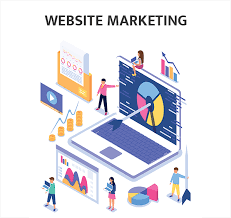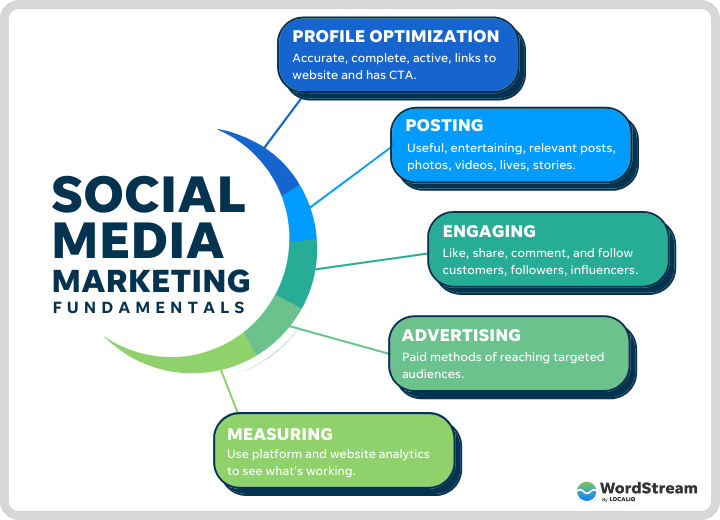In the fast-paced world of business, digital marketing has emerged as a transformative force, reshaping the way brands connect with their audience. From social media campaigns to search engine optimization (SEO), digital marketing encompasses a myriad of strategies aimed at enhancing online visibility, engagement, and conversion rates.
One of the most significant advantages of digital marketing is its ability to reach a global audience with unparalleled precision. Through targeted advertisements, businesses can tailor their messaging to specific demographics, interests, and behaviors, ensuring maximum relevance and impact. This level of customization not only increases the effectiveness of marketing efforts but also optimizes return on investment (ROI).

Moreover, the advent of analytics tools has revolutionized the way marketers measure and analyze campaign performance. By tracking metrics such as website traffic, conversion rates, and customer engagement, businesses can gain invaluable insights into consumer behavior, preferences, and trends. This data-driven approach enables marketers to refine their strategies in real-time, adapting to evolving market dynamics and maximizing results.
In recent years, the rise of social media platforms has further expanded the scope of digital marketing. With billions of users worldwide, platforms like Facebook, Instagram, and Twitter offer unparalleled opportunities for brands to engage with their target audience on a personal level. Through compelling content, influencer partnerships, and interactive campaigns, businesses can foster genuine connections with consumers, driving brand loyalty and advocacy.
However, the digital landscape is constantly evolving, presenting both opportunities and challenges for marketers. Rapid advancements in technology, changes in consumer behavior, and shifts in regulatory frameworks necessitate continuous adaptation and innovation. To thrive in this dynamic environment, businesses must stay abreast of emerging trends, leverage new technologies, and prioritize agility and flexibility in their marketing strategies.
Digital marketing has become an indispensable tool for businesses across various industries, offering versatile applications that drive growth, enhance brand visibility, and foster customer relationships. Here are some key applications of digital marketing:
- Brand Awareness and Visibility: Digital marketing helps businesses increase their brand visibility and awareness through channels like social media, search engines, and content marketing. By creating engaging content and leveraging platforms where their target audience spends time, businesses can effectively build brand recognition and recall.
- Lead Generation and Customer Acquisition: Through strategies such as search engine optimization (SEO), pay-per-click (PPC) advertising, and email marketing, businesses can generate leads and acquire new customers. By targeting relevant keywords, optimizing landing pages, and crafting compelling email campaigns, digital marketing facilitates the process of attracting and converting prospects into paying customers.
- Customer Engagement and Relationship Building: Social media platforms and email marketing are powerful tools for engaging with customers on a personal level. By sharing valuable content, responding to inquiries, and soliciting feedback, businesses can foster meaningful relationships with their audience, leading to increased loyalty and advocacy.
- E-commerce Sales and Conversion Optimization: For businesses operating in the e-commerce space, digital marketing plays a crucial role in driving sales and optimizing conversion rates. Through techniques like conversion rate optimization (CRO), retargeting ads, and personalized product recommendations, businesses can streamline the purchase journey and maximize revenue from online transactions.
- Content Marketing and Thought Leadership: Content marketing is a cornerstone of digital marketing, allowing businesses to establish thought leadership, educate their audience, and build trust. By creating high-quality, relevant content such as blog posts, videos, and infographics, businesses can position themselves as authoritative voices within their industry, attracting prospects and retaining customers over the long term.
- Data Analysis and Performance Tracking: Digital marketing provides robust analytics and tracking tools that enable businesses to measure the performance of their campaigns accurately. By monitoring key metrics such as website traffic, engagement rates, and conversion metrics, businesses can gain valuable insights into consumer behavior, identify areas for improvement, and refine their marketing strategies accordingly.
Unlocking the Power of Digital Marketing
In today’s digital age, the landscape of marketing has transformed dramatically, paving the way for businesses to reach their audiences more effectively than ever before. Digital marketing encompasses a myriad of strategies aimed at leveraging online platforms to promote products and services, engage with customers, and drive sales. From social media marketing to search engine optimization (SEO), this dynamic field offers boundless opportunities for businesses to connect with their target demographics.
One of the most prominent aspects of digital marketing is its ability to precisely target specific audiences. Through tools like Google Ads and Facebook Ads, businesses can tailor their marketing efforts based on demographics, interests, and behaviors, ensuring that their messages resonate with the right people at the right time. This targeted approach not only maximizes the efficiency of marketing campaigns but also helps in optimizing return on investment.
Moreover, digital marketing facilitates real-time engagement with customers, enabling businesses to interact with their audience instantaneously. Social media platforms serve as invaluable channels for fostering relationships with customers, addressing their inquiries, and receiving feedback promptly. This direct line of communication fosters brand loyalty and enhances customer satisfaction, ultimately contributing to long-term success.
Additionally, digital marketing provides extensive analytics and data insights, allowing businesses to measure the performance of their campaigns with precision. Through metrics such as website traffic, conversion rates, and engagement levels, marketers can gain valuable insights into consumer behavior and preferences. This data-driven approach empowers businesses to refine their strategies continuously, optimize their marketing efforts, and stay ahead of the competition.
In conclusion, digital marketing has revolutionized the way businesses promote their products and services, offering unprecedented reach, targeting, and measurability. By harnessing the power of digital channels, brands can effectively engage with their audience, drive meaningful interactions, and ultimately, achieve their marketing objectives in the ever-evolving digital landscape.
 Clear My Certification All Certification Exam Answers
Clear My Certification All Certification Exam Answers

